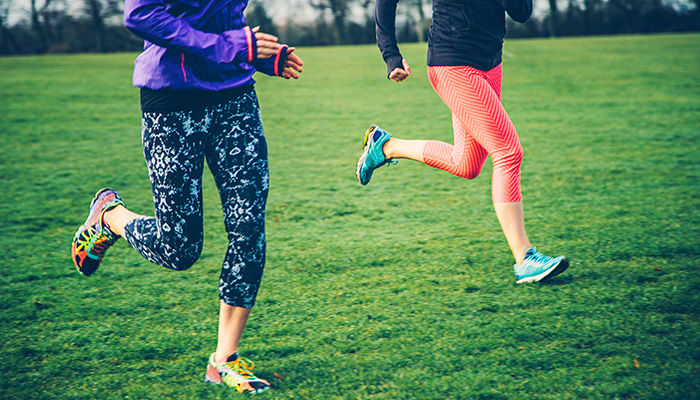
Assoc. Prof. İsmet Tamer, Member of the Herbalife Nutrition Advisory Board for Turkey, says that changes to our eating and sleeping patterns during the month of Ramadhan affect our body’s biological clock (circadian rhythm).
It is recommended that one follows these four important steps to help avoid weight gain by the end of Ramadhan.
1. Don’t Stop Working Out
Due to long hours of fasting, your body slows down your metabolism in order to use energy as efficiently as possible. Assoc. Prof. İsmet Tamer, a member of the Herbalife Nutrition Advisory Board,advises that if you don’t watch what, when and how much you eat, it is likely you will gain weight. He adds, “If people who usually maintain a healthy lifestyle by exercising don’t take the necessary precautions or follow a regular routine during Ramadhan, they might do more harm than good to their body, including weight gain at the end of the month. As people are not able to eat or drink water during the day, they then binge on food, switch to a lighter workout routine, or quit exercising altogether during Ramadhan, causing the excess energy they consume to turn into additional weight. However, if one doesn’t have any underlying health problems, there is no reason not to maintain the exercise routine, even when Ramadhan falls during the hot season in Malaysia.
2. Head Out to Exercise an Hour or Two After Iftar
Assoc. Prof. Tamer points out that it’s important to pay attention to the timing of exercise due to the long hours of fasting during Ramadhan. He says, “People who exercise to maintain a healthy lifestyle should use their energy efficiently during the day and exercise one or two hours after iftar. This improves digestion and helps burn any excess calories that come from the usual iftarfood.”
3. Switch to A Shorter Exercise Routine
Assoc. Prof. Tamer adds, “Many studies suggest that the performance of both professional athletes and sports enthusiasts who reduce their exercise duration by half or who switch to a lower weight are not greatly affected, and that two or three weeks after Ramadhan, they are able to get back to their normal routine without any adverse effects.”

4. Don’t Forget to Drink Plenty of Water

Assoc. Prof. Tamer underscores that regardless of how much people exercise, everyone who fasts during Ramadhan should drink as much water as their body needs. He says that fluid and electrolyte balance is vital for athletes. Exercising without getting sufficient amount of fluids, especially on hot days, may lead to heat stroke, dehydration or muscular problems due to loss of fluids and electrolytes. This is especially true in Malaysia, a country that is usually hot and humid. He suggests to drink fluids in a balanced way between iftarand sahurto make sure one reaches the recommended daily fluid intake.
Ramadhan is a special month of self-reflection and worship for millions of Muslims all over the world. There are a lot of temptations that could stop one from safely and effectively progressing through the holy month healthily. Therefore, make sure to follow these tips so you can maintain a healthy body throughout Ramadhan!
Source: Herbalife Nutrition










